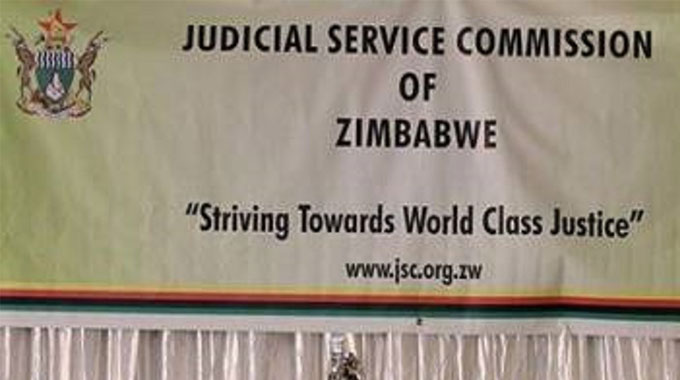
The Sunday News

Peter Matika, Senior Reporter
THE Judicial Services Commission (JSC) will introduce live broadcasts of cases of public interest in a bid to curb corruption, as well as to promote transparency and accountability within the system.
JSC has for the past two years been making efforts to open the courts to the public beyond attendance. This was revealed by the Deputy Chief Justice Elizabeth Gwaunza during the official opening of the 2020 legal year in Bulawayo recently.
Justice Gwaunza also noted that very few people were able to attend court proceedings, yet cases of public interest did not only affect the litigants before the courts but large sections of society who may be impeded from attending proceedings due to the geographical location of a court, for example.
“Due to this impediment, operations of the courts may end up being construed as a preserve of a few, and the ordinary man may end up viewing the decisions of the courts with suspicion. In order to enhance transparency and dispel notions of secrecy and suspicion, it becomes necessary for courts to go beyond opening their hearings to those members of the public who are able to attend court and allow live broadcast of cases of public interest,” said Justice Gwaunza.
She said the live broadcasts of court proceedings had gathered momentum in other countries and beyond Southern Africa.
“The Judicial Service Commission embraced for the first time through the live broadcast of the hearing of the 2018 presidential poll petition. This was to be followed by other cases of public interest, which were also broadcast live in the Supreme Court. Such live broadcasts will be replicated in future in cases of public interest. This trajectory speaks to the Judiciary’s commitment to transparency and accountability,” said Justice Gwaunza.
She said the plan was to ensure transparency and accountability in court proceedings, as a way of weeding out corruption.
“We also require courts to provide reasons for their decisions through writing and publishing judgments. The provision of reasons for a decision is one way of the courts accounting to the citizens on the exercise of judicial authority.
“A duty to give reasons entails a duty to rationalise the decision. The giving of reasons is therefore one of the fundamentals of good administration. From a common sense perspective, reasoned decisions are generally preferable to unreasoned ones, and it is fair to inform affected individuals of the reasons for any action which has been taken against them,” said Justice Gwaunza.
She said from a constitutional point of view, the provision of reasons is an important mechanism for making administrators accountable to the people they serve and for achieving a culture of justification.
“It is healthy that members of the community take an interest in the operation of the law, in the administration of justice and in all aspects of the rule of law in Zimbabwe.
“The provision of reasons for a judgment enables any member of the public to scrutinise every such judgment, be informed of its rationale and make informed comments on the courts, judicial officers and the judicial system especially in matters which are of public interest,” said Justice Gwaunza.
She said the judiciary has put in place safety nets, meant to ensure that judgments are released without undue delay.
“In 2019, the magistrates’ code of ethics was gazetted. It sets out the timelines in which judgments must be handed down. A corresponding code for judges has been in place since 2012. Further, the Chief Justice is in the process of ensuring that judgments, which have been outstanding for unnecessarily long periods are handed down through engagements with the heads of the various courts,” said Justice Gwaunza.
The call to account has gone beyond the requirement to hand down judgments within the prescribed timelines.
She said the committee is charged with developing a performance model for judges, and is now in the process of gathering views from relevant stakeholders and experiences from other jurisdictions.
“Measuring judicial officers’ performance is meant to demystify the age-old misconception that judicial independence is synonymous with unaccountability.
“In the years gone by, performance measurement for judicial officers was unheard of but it has now become a norm across all progressive jurisdictions to keep track of the performance of judicial officers and the courts.
“Zimbabwe is embracing this new ‘norm’ in the spirit of transparency and accountability,” added Justice Gwaunza.
@peterkmatika



